Roads and bridges are considered as the symbol of a nation's progress, but it is more than that for a few people, who build their entire life by staying on the streets. For many, streets are the way to their destination. However, for streets residents, it is the journey of life. It is fascinating to see how shabby footpaths, saree rags, and multi-colour bags make the interior of their homes. How those bags, that ambience has room for an entire family. It depicts their socio-economic-cultural way of living.
Anna Bhonsale and Bakula bai is one such family living under the bridge in the Hadapsar area Pune. Anna touching his whites on the chin said, “I came here when the foundation of the bridge was being laid. Since then, I have been here, the family has been here, going back and forth to our hometown Baramati, living, surviving whatever, you call."
Anna Bhonsale & Bakulabai belongs to the Phanse Pardhi community, also known as the so-called Chor Jaat. Historically, Phanse Pardhi has been a hunting community, and forest their home. They neither knew agricultural work nor owned any land. With hunting made illegal, the community was deprived of their traditional occupation, forcing them to leave the forest. Pardhi began robbing food grains and livestock for survival. Also, during colonial times, in 1871 British government tagged such communities as ‘criminal tribes’ following their rebellious attitude towards the regime. Pardhi community carried messages of freedom fighters, also contributed to the notorious act against Britishers. For the British rulers, it became hard to identify the culprits. Under Criminal Tribes Act, as an act of punishment, they were framed as criminals and forced to live outside the village. In 1952, all tribal communities were De-Notified, Pardhi being one among them. In Maharashtra, they were categorized as ‘Scheduled Tribe’.

Anna-Bakulabai's family and extended family members. Few of them speaking to the passer-by giving them food.
Despite the removal of the act, the tag remained the same! Discrimination continued to prevail. Abandonment made them suffer from extreme poverty, displacement, and discrimination. Currently, the community is making their living through begging, hunting, making baskets, making ropes, singing, or dancing. Few of them are doing menial jobs like a scavenger, watchmen, field guards, mendicants, labour work, agriculture, cattle rearing, netting game in jungles, and snake charming.
Anna has a similar story of humiliation to share. Along with his family members, Anna used to work as a guard (Gaavki/ Rakhandar), he protected the farmlands of fellow villagers. In return, he received food grains as his remuneration. However, the one-day village witnessed the theft. Eventually, the blame fell on Anna. He was rushed out of his village for the theft he never committed. It exactly sounds like the plot of the film Jai Bhim, wherein a particular community- 'Irula' is framed and later suffers from wrongful incarceration. The film depicts communities from rural settings, whereas Anna belongs to urban settings. For Anna, it was one way to escape his realities.
Anna came to Pune in the year he does not remember but says- "I have seen Hadpsar growing through my naked eyes, that is how old I am. These streets are my homies, I stayed here, earned my meals, my entire family grew up here." Bakulabai, in her late 70’s stood beside Anna as his better half. She said, “These streets have become my address, we even have Adhar Card now. We have two homes- one where we earn, the other is my hut in the village.” Anna and Bakulabai have three daughters and two sons, all of them married. Few of their daughters, daughter in law come with Anna and Bakulabai, stay under the bridge. As an occupation, they take up begging and become beggars to earn a livelihood. Routine is simple- to wake up, eat, whole day beg on signals, at night count coins and notes, make calls home and go off to sleep. Every family member has their own set of problems and reasoning to beg on the streets. Begging is more of a source of income supplementing the incomes of their spouses and children.
Nanda Shinde, in her 50s, daughter of Anna and Bakulabai, has also taken up begging. According to her, there is no steady work in Tumarwadi village to earn proper meals. Besides, her son is a drunkard doing odd jobs, he spends all his earnings on alcohol. The daughter-in-law demises forced her to bear family responsibility. She died due to depression and other illnesses following it. She suffered from constant headaches and consumed painkillers daily, causing harm to several organs. Due to financial reasons, she failed to access the medical facilities. Later, both kidneys got damaged, resulting in death. After the mother's demises, the four-year-old grandson accompanies Nanda in begging. Nanda said, "who wants to beg, but it is good money and steady source." Accessing healthcare facilities is more of a luxury than being a basic need for them. The root cause directly or indirectly lies in poverty, socioeconomic status, and the stigma associated with social identity. During COVID-19 induced lockdown, the anxieties increased among these sections. In fact, the crisis of primary resources caused more mental distress than the virus itself, as per the report by Deepa Pawar, a founder of Anubhuti Charitable Trust. Lockdown forced full stop on odd jobs as well as begging could not sustain. Vinda is a lawyer working on Human Rights Issues of Tribal Groups. According to her, Mental healthcare is a faraway facility to access, several tribals are not even treated well for primary health-related issues.

Dhanshree Bhonsale is grand daughter of Anna and Bakulabai, who studies in third grade. Due to covid-19, she comes with her grandmother to the bridge.
On asking about picking up unskilled jobs such as house help...All ladies, including Savita, unanimously responded 'No'. Savita says, “who is going to trust us. We neither have home nor surety of our regularity”. Women visit their children and other family members once every three weeks and stay for a certain period. Moreover, the unavailability of papers and verification of their residence fails to acquire such jobs. Savita Bhonsale is a native of Vadgaon. The eldest daughter-in-law of Anna and Bakulabai. She was bold of all, straightforwardly putting her demands. Savita’s children are educated. Few completed 10+ 2 grades or graduated but failed to secure a job. Savita complains we are side-lined in our village due to our social status and our caste. People still look at us from the frame of criminals. I have begged for my children's education, thinking of not letting them end up on streets like us. It feels it does not matter whether we are educated or not. Savita’s children are in her hometown doing odd jobs. She exclaims, “Our lives are wasted, but do not want my grandchildren to live like us”.
Likewise, the other family members, including Sangita Pawar, have the same tale to narrate. Though, Sangita’s concerns are different. She is worried about her daughters, whom she left with her sister-in-law's house in Madanwadi, Bhigwan. Sangita’s youngest son accompanies her. In the soft-spoken voice, Sangita said, “he is the youngest one, so I carry him with me. I have to keep my daughters away because it is not safe here”. Sangita, almost for a decade now is begging on the roads, finds no way out. Her husband is differently-abled and cannot work, making her breadwinner of the house. Sangita also complained of insomnia and spoke about how she has been sleepless for a decade. Women are not safe- at some point, every woman has experienced it. Sangita and other female members of the house are living these horrors every day. During the daytime, Sangita and other ladies beg and at night take turns to guard themselves. Sangita says, “We come here to provide our family risking our lives every day”. Sangita referring to a gruesome incident said, "a few months ago, a man raped mentally ill woman in the middle of the night. We all were listening to her pain; he did not leave her until she stopped screaming. We felt powerless, closed our eyes, and everything blended back in the night”.
Savita’s daughter is also part of the convo. Meena* has a similar story of her husband being an alcoholic and working as a wage earner in the village. She wakes up every day around 7 am, bathes once a week during her stay under the Hadapsar Bridge. She says, “nearby there is a corporation tap, we bath there once a week. If we clean ourselves every day, who will give us money”. Usually, beggars are identified as shabby, unhygienic, and pathetic-looking people. She gets the opportunity to doll up when in her village. "Most of the time people also pass a comment saying- why you are begging, why don’t you get into prostitution", she adds. Further, she points out our work for generations has been of asking and eating, why will I go for prostitution.

Granddaughter of Anna sleeping with her daughter under the bridge on the pavement of Hadapsar bridge, Pune
Along with their children, Anna-Bakulabai's family and extended family members beg at the signals. To ask why! The answer is discrimination in the village, improper income sources, lack of employment opportunities, and poor education. The schools in villages lack quality education. Few family members feel government school education is not as good as private schools. The private schools provide good education but are expensive at the same time. So, kids have to miss their schools as they do not find any motivation to attend one. Diya Bhonsale is seven years old, extremely smart at her age. However, she is yet in pre-primary class. Most of the time, she is busy earning a livelihood for other family members. Dhanshree Bhonsale accompanies her grandmother to beg on the streets of big cities. We often see these kids on the streets, some wrapped in their mother’s arms, a few holding hands begging with a pity face. But these kids have their own stories, which is larger than their life lived.
All these women have their own reasons to beg on the streets and live undignified life. Nonetheless, 'begging' is not an answer to every question. The legal activist Vinda emphasis the negative attitude of certain people living as beggars. Important is to acknowledge and adapt to change. For people with traditional skills sets, it is hard to sync with the contemporary world. New skill sets are to be acquired. Eventually, this is not happening. They are stuck with their old lifestyle. Besides, children being the first learner guidance provided is inadequate. Parents have the assumption that the younger generation might get in a better position based on 10th or 12th qualifications, which is not the case.

Savita, eldest daughter of the family. The youngest in the frame is the granddaughter of Savita. She accompanies her to earn money by begging. Three generations together.
Another hindrance in their development is the attitude of not breaking the vicious circle of poverty and living life with dignity. They get comfortable in earning easy money- that is begging. Vinda adds, one child, earns on an average Rs.400/- per day by begging. If a couple has four pupils, it is more money than a 9 to 6 job. However, this is subjective, differs from person to person. People begging in urban settings have this tendency. So, it is necessary to work on discrimination, attitude then law considering their rights.

Camera caught Diya and Manav* while playing on the pavement
Ignorance of this section of society could not help in their development. Society acceptance of their current status is key to the change and vice versa. Spending a night with them gave me a day of their life. There is so much grey out there. More efforts are required to change their attitudes. Community-based participation and proper execution of schemes are needed to provide quality education and decent employment. There is a lot to take into consideration to change their lives and stop them from begging.
Words and Photos by Snehal Mutha
muthasnehal535@gmail.com
Published on the backdrop of Mhatama Gandhi's Death Anniversary
Tags: pardhi slums poverty urbanpoor womensafety mentalhelth rapeinindia Load More Tags

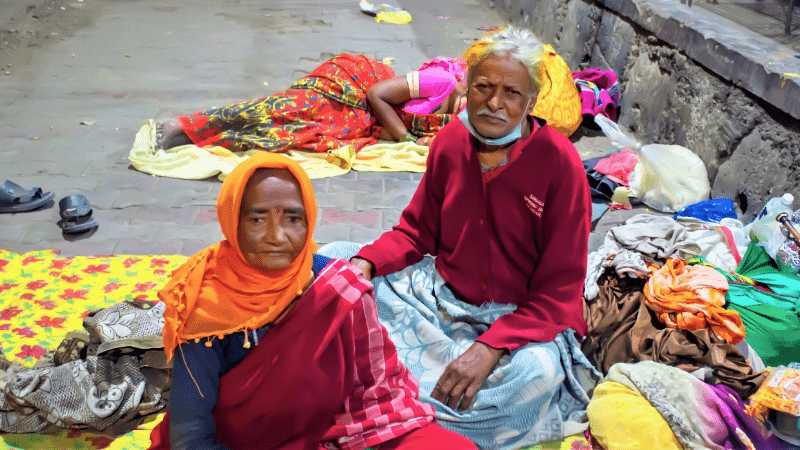

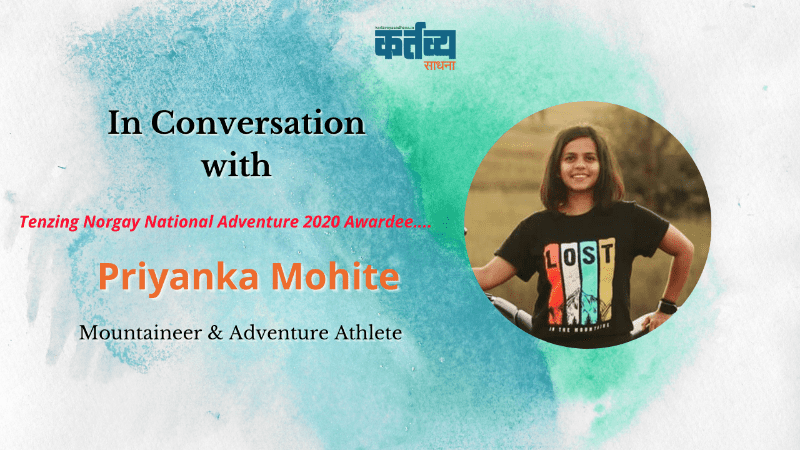
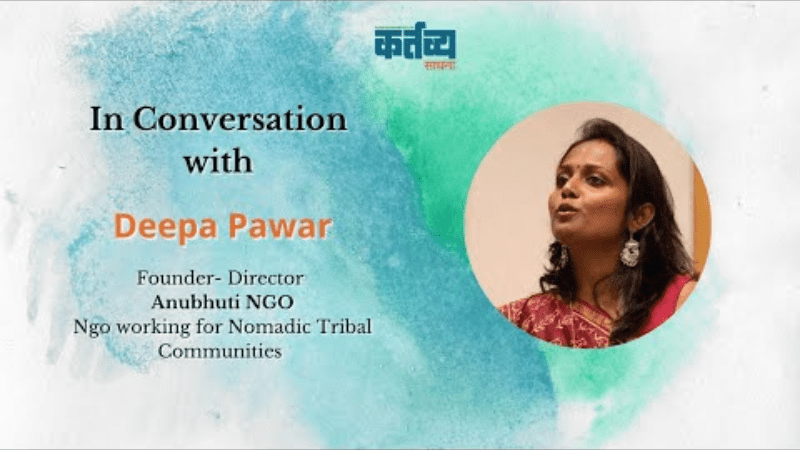
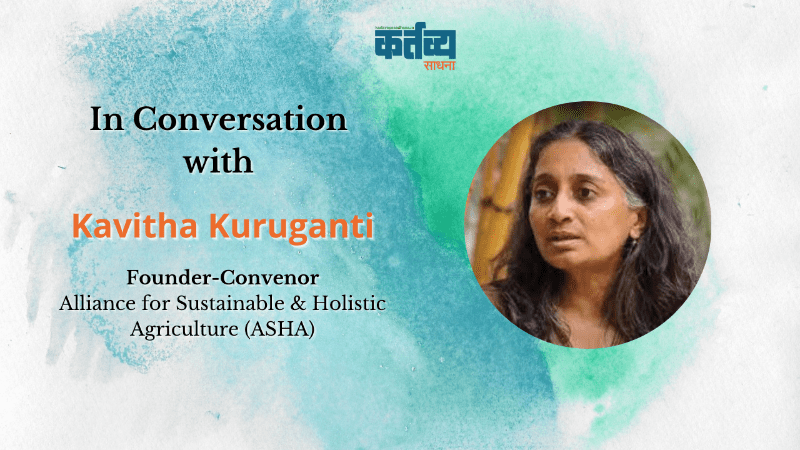
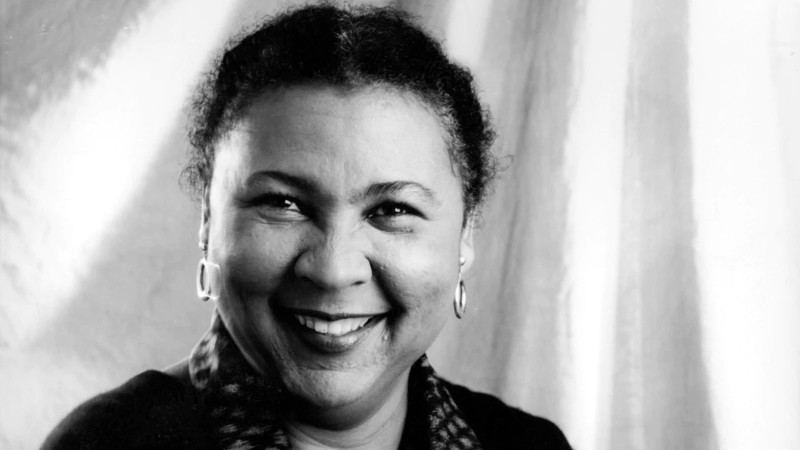
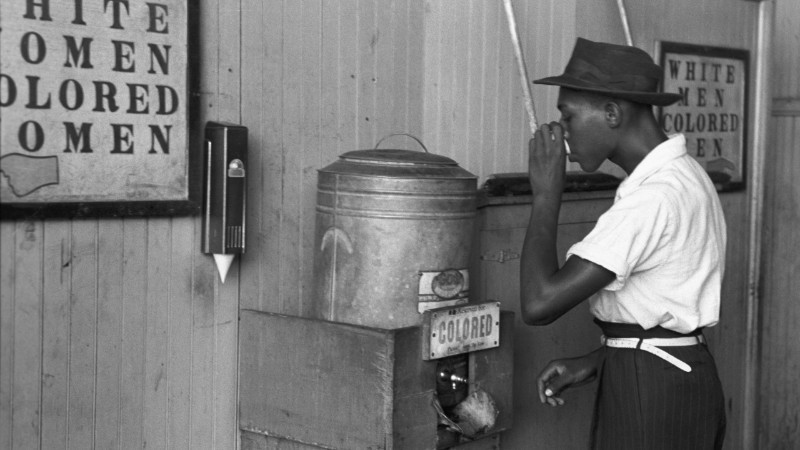
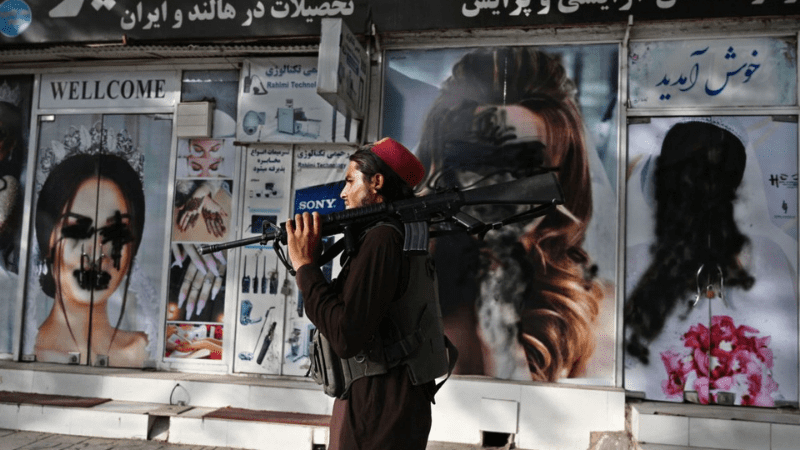

























Add Comment